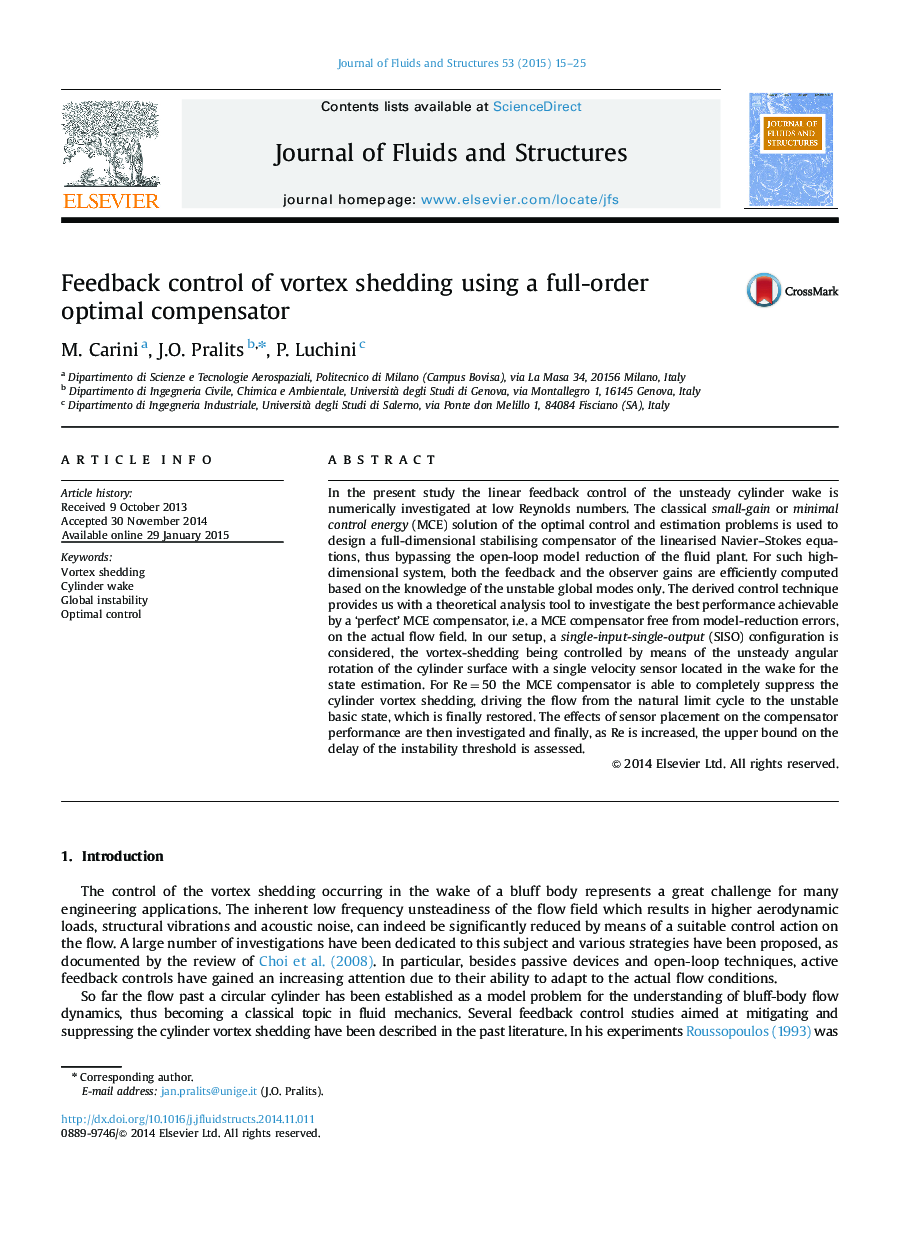| Article ID | Journal | Published Year | Pages | File Type |
|---|---|---|---|---|
| 7176008 | Journal of Fluids and Structures | 2015 | 11 Pages |
Abstract
In the present study the linear feedback control of the unsteady cylinder wake is numerically investigated at low Reynolds numbers. The classical small-gain or minimal control energy (MCE) solution of the optimal control and estimation problems is used to design a full-dimensional stabilising compensator of the linearised Navier-Stokes equations, thus bypassing the open-loop model reduction of the fluid plant. For such high-dimensional system, both the feedback and the observer gains are efficiently computed based on the knowledge of the unstable global modes only. The derived control technique provides us with a theoretical analysis tool to investigate the best performance achievable by a 'perfect' MCE compensator, i.e. a MCE compensator free from model-reduction errors, on the actual flow field. In our setup, a single-input-single-output (SISO) configuration is considered, the vortex-shedding being controlled by means of the unsteady angular rotation of the cylinder surface with a single velocity sensor located in the wake for the state estimation. For Re=50 the MCE compensator is able to completely suppress the cylinder vortex shedding, driving the flow from the natural limit cycle to the unstable basic state, which is finally restored. The effects of sensor placement on the compensator performance are then investigated and finally, as Re is increased, the upper bound on the delay of the instability threshold is assessed.
Related Topics
Physical Sciences and Engineering
Engineering
Mechanical Engineering
Authors
M. Carini, J.O. Pralits, P. Luchini,
